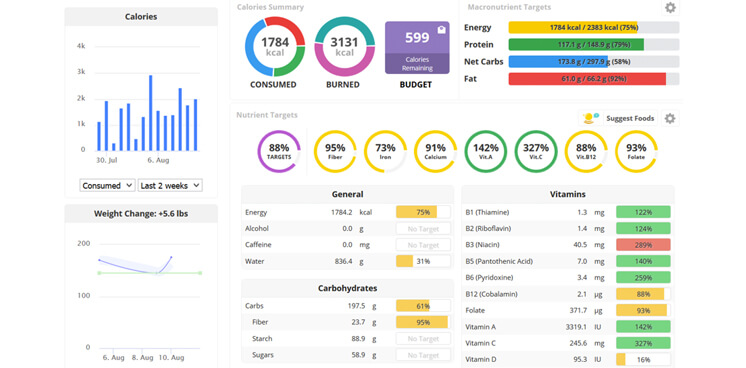

When you switch over to a diet that’s radically different from your standard diet (keto, vegan, etc.), it’s always a good idea to track your diet and see if you’re missing anything. Bland palate I suppose, haha.New vegans more than anyone should track the nutrition of their diet to avoid any possible vegan health problems. Just saying I am trying to be nutrient dense so far as I can to ensure I hit my points (given poor absorption of things like multi-vitamins) and then introduce the foods I find especially appealing to eat.if I just ate the stuff I cooked almost entirely all the time though, I really wouldn't be all that upset. Also, hopefully no one takes this comment to be some sort of "devolving" notion of clean/dirty foods. And in the process, keep the calories as restricted as I can (that way I can take the approach of discretionary calories for ice cream, cookies, restaurant with friends, alcohol out at night, etc) and feel I did a good job of ensuring I am eating well.

Given I like to bulk-prepare food (saves me time, get to eat what I want, etc) and I don't mind a lot of food repetition - I am planning on instead constructing a few "sample days" of things to eat, to cover my baseline for macros/micros. I don't actually plan to use cronometer for daily logging, however. A few of you are mentioning the database is limited and that you prefer MFP for this reason.what database is MFP using and have you checked its accuracy for macros? From what I can tell, the "recent" (last year or so I think? ) addition of the NCCDB database allows cronometer to blow most of the competition out of the water, in terms of sheer number of entries.Įase of use - definitely a worthy consideration, thanks. Confirmed on the barcode scanning - although not a feature I'm interested in.I don't care much for walking/interacting with a phone app for my nutrition stuff (see my paragraph at bottom for why, if interested.tl dr - because I'd mentally recall my discretionary calorie allotment and apply it as I go about my day, after hitting my unconditional nutrition goals).ģ. When I was reading on the site features, "Recipe" creation was a "free" feature.Ģ. Surprised by a few of these comments, because:ġ. Macro & Micro Nutrients Explained: /showthread.php?t=2845231Ĥ. Micronutrient Discussion Thread: /showthread.php?t=160169531ģ. Calorie Counting Websites (Emma-Leigh): /showthread.php?t=119482931Ģ. Links of interest (for those who have no idea what I'm talking about above):ġ. Similarly, I'd anticipate higher niacin and trans fat levels (naturally occurring kind) from higher meat consumption (the higher natural-trans levels appear to be okay and, outside of someone experiencing obvious niacin flush, I personally am unfamiliar with concerns over raised niacin). For instance, I would expect higher sodium levels to be acceptable, given increased sweating from hard workouts. For cronometer users, have you any thoughts on particular micronutrient minimums/maximums for those bodybuilding that should be kept in mind (compared to sedentary/general-public, which is likely the audience for the default RDI numbers). Has anyone any input on why cronometer would NOT be a good website to use?ģ. So, with that said, cronometer appears the best to me. There's a lot of posts where people state they simply prefer 1 website over another for food logging, but I couldn't find much in the way of pros/cons people have experienced using any. Has anyone any experience comparing NCCDB with the USDA? Specifically, I am wondering about macro breakdowns, but micronutrients would be interesting too (doubt too many have looked that intensely).Ģ.

I searched through about 10 threads for the above terms, but didn't find satisfactory answers, so posting here my questions:ġ.


 0 kommentar(er)
0 kommentar(er)
